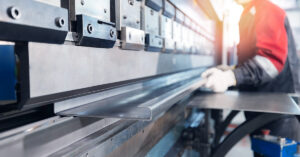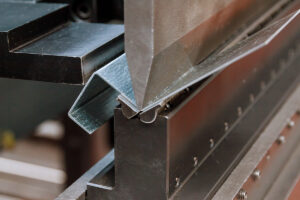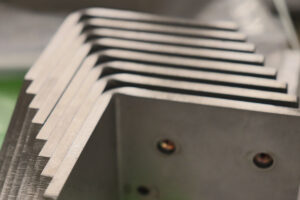American Manufacturing is still alive and well. There are thousands of precision machine shops across the country with an array of specialties. Most of these machine shops are drawn to the business model of high-volume production runs. Less experienced operators can run the job once it’s set up correctly, and big dollars come from each job.
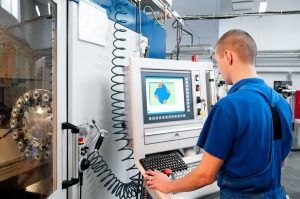
As a result, it is getting harder and harder to find the right suppliers for low-volume precision machining when the job requires small batches and short runs. For the purpose of this article, I’m mainly talking about jobs of 1-50, 50-300, and 300-1,000 EAU quantities. These quantities are highly prevalent in complex industries such as Medical, Semiconductor, Defense, Printing, and others.
From the manufacturer’s standpoint, it is incredibly hard to find the right jobs, labor, and equipment to make money at the low-volume end of the business. For OEMs looking to outsource this kind of precision machining work, it isn’t easy to find a machine shop that has the capability to efficiently and effectively produce low-volume precision parts at a reasonable price. So, without further ado, I present you with some indicators that can help to identify a good low-volume precision machining partner.
1. Fast Setup Times and Continuous Setup Reduction Improvements
In low-volume precision machining, setup is everything. The setup costs are amortized across the entire batch of parts for that run. Since the parts are essentially the denominator in the equation, the lower the number of parts, the higher the cost per part.
So often the setup has more effect on the overall unit cost than the cycle time! In large production lots, this is rarely the case. But in our special situation of low volumes, the importance of a fast and efficient setup is crucial. There are many times here at PEKO where we see setup times that are far greater than the total run time of all parts. It is the nature of the business and those shops with the fastest setups and the best setup reduction improvements are going to provide the best pricing and lead times.
2. Large and Capable Inspection Department
Inspection is always a difficult bottleneck in any manufacturing process. It is slow, cumbersome, and tedious, but it must be done correctly. Today’s CMMs are highly capable but that comes with a huge price tag. Finding a machine shop with a large and capable inspection department is going to help with the cost, quality, and delivery.
Low volume production runs mean that this shop must run multiple parts to stay afloat. As such, the inspection department is running a lot of first articles to ensure production is running smoothly. This creates a bottleneck itself as the CMM must set up and run dozens of different parts per day. Make sure to take into account the capabilities of the inspection area for your low-volume precision machining supplier.
3. Robust ERP System
There’s a big difference between running 10 part numbers at 50,000 EAU versus 500 part numbers at 1,000 EAU. In low mix, high-volume production, it is relatively easy to keep processes documented and production running smoothly. In this scenario, purchasing, routing, and logistics are done at rudimentary levels.
However, for high mix, low volume production runs, things change drastically. The low-volume precision machining shop must incorporate a highly sophisticated ERP system. A snowball effect is created when the ERP and team aren’t correctly prepared for the complicated routing and purchasing procedures for each part.
4. Skilled Operators and Engineers
Having a skilled team to operate the high mix, low volume environment is absolutely crucial to success. The skill level of these employees is typically higher than their high-volume counterparts due to the nature of the work required. This includes most of the above, such as being able to do quick setups, getting parts through inspection, and understanding the ERP system.
Operators and manufacturing engineers must work together to ensure the flow is proper and that no time is wasted. When choosing a low-volume precision machining partner, ensure there is a capable and properly trained team on the job.
Remember, low volume machining is a different animal than its mid-volume and high-volume counterparts. Good precision machine shops for low volume will have similar traits, but there are critical factors that will separate them. Having great setup times, large inspection areas, a robust ERP system, and qualified personnel are the keys to success for these suppliers.
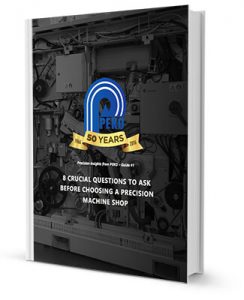 When you have a need for low-volume precision machining, how do you sort the great from the decent or not so good? To help you in evaluating and selecting an ideal partner, we’ve prepared a list of eight critical questions to ask before choosing a precision machine shop.
When you have a need for low-volume precision machining, how do you sort the great from the decent or not so good? To help you in evaluating and selecting an ideal partner, we’ve prepared a list of eight critical questions to ask before choosing a precision machine shop.
» Learn More About Our Small Parts CNC Machining Services
» Learn More About Our Large Parts CNC Machining Services






